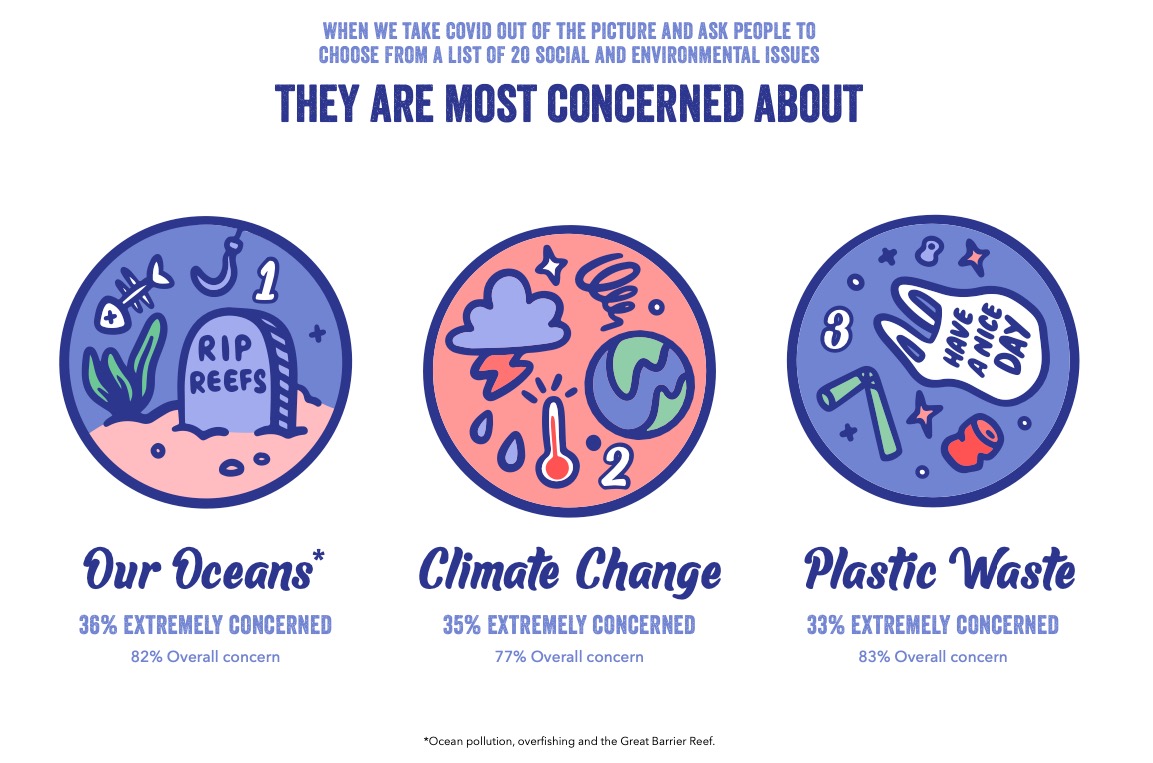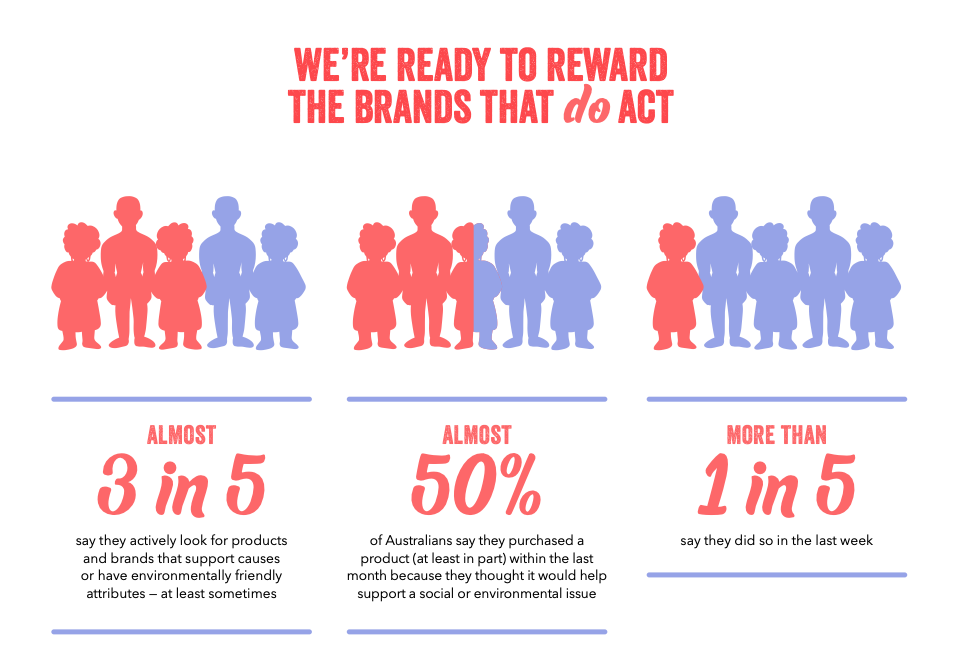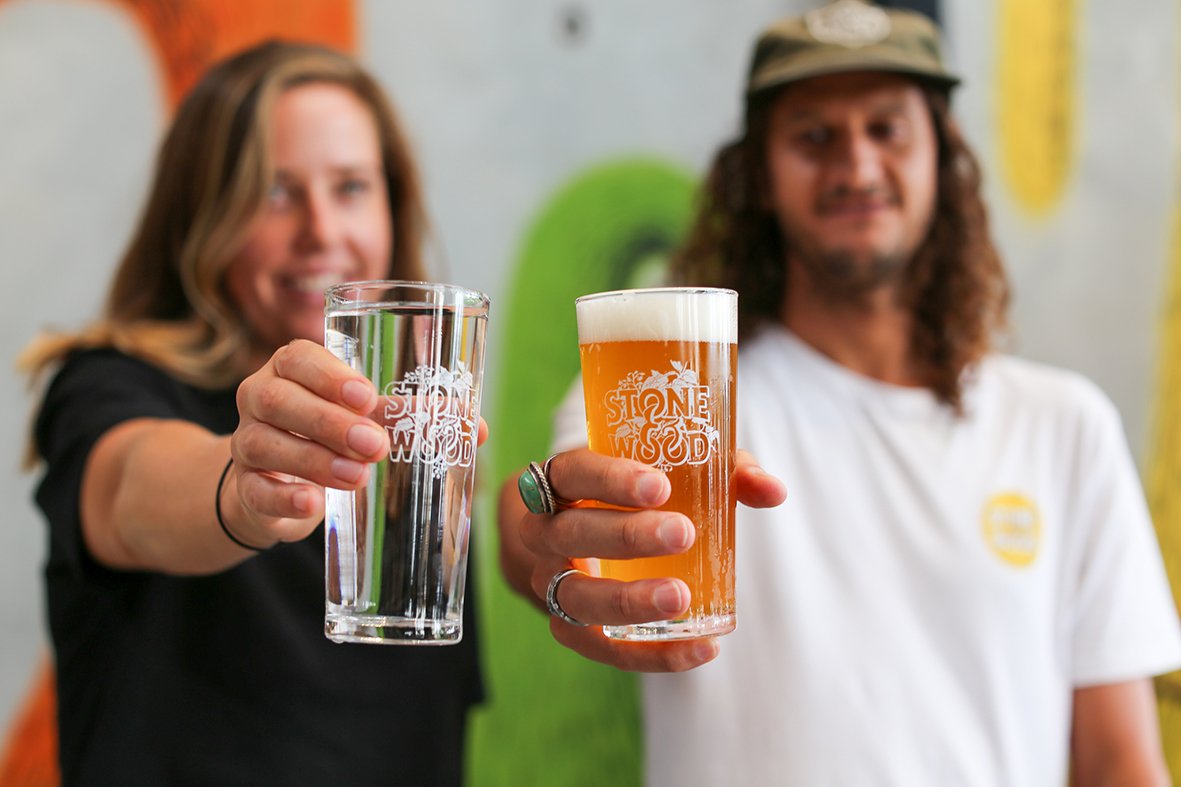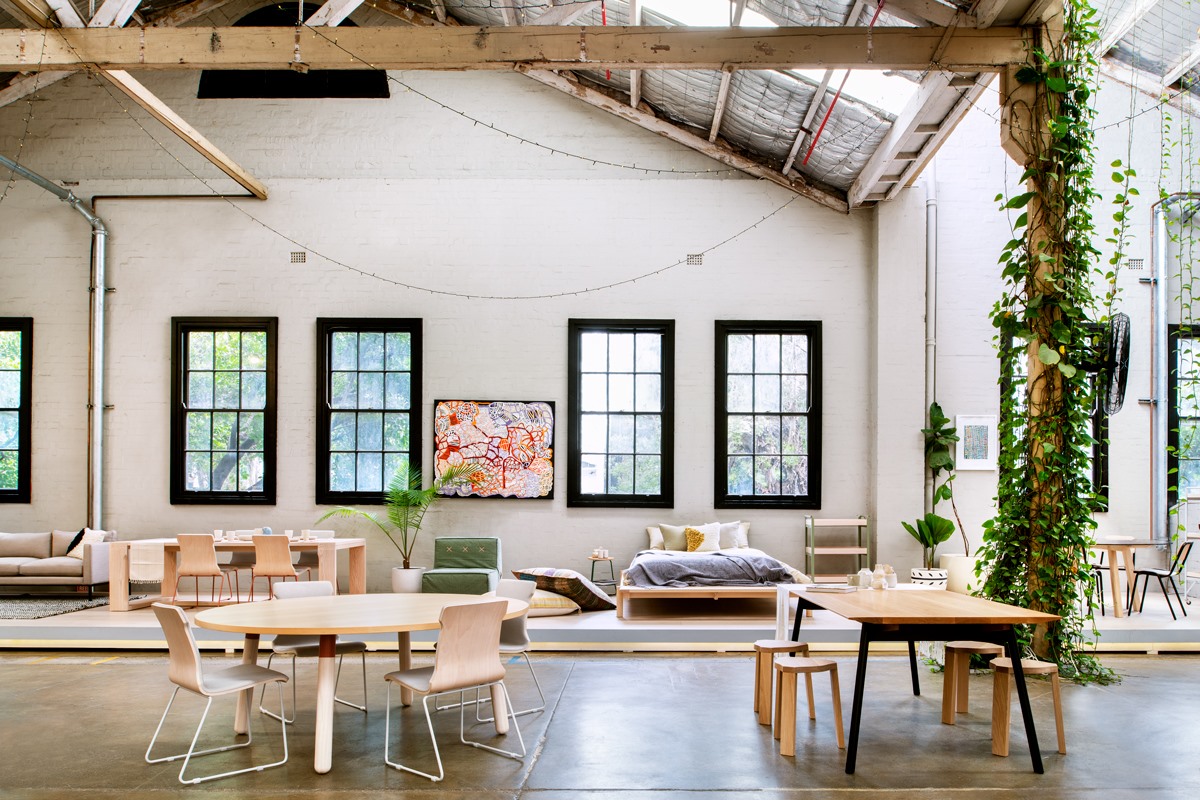Purpose-led brands – it’s no longer a matter of if, but how, you are doing good in the world.
When COVID hit, Ben sensed a collective disappointment amongst for-purpose businesses.
“In 2019, there was a real momentum behind the sustainability movement…especially with climate.” But as businesses and people turned their focus to pandemic survival, people like Ben worried that the short-term thinking of decades prior was bound to return.
”It hasn’t turned out that way, thankfully,” says Ben Peacock, Founder of Republic of Everyone, a Sydney-based B Corp and sustainability and brand impact creative consultancy. “But at the time [when COVID was starting to take hold] it was a real question for us: what was in people’s minds before, is that still there now? Do they still care as much? Or do they care about different things?”
“We realised that there was absolutely no research on that in Australia.”
So, The Power and the Passion was born: an in-depth research piece about what issues Australians care about the most right now, how concerned they are, and what actions they are willing to take on them.
The big issues
While COVID-19 dominated the news cycles of 2020 (and, unfortunately, 2021), the team at Republic of Everyone wanted to know what Aussies were concerned about beyond the pandemic.
The number one issue was our oceans, including pollution, overfishing, and the Great Barrier Reef. The second was climate change, and plastic waste came in third.

Respondents were also asked to share their level of concern across twenty social and environmental issues to help answer one vital question: are Australians actually that concerned, or are they really as laid back as stereotypes suggest?
“What the data tells us is that in general, concern among Australians is really, really, high,” says Republic of Everyone’s Emily Saunders.
Of the 20 issues presented in the survey, more than half of respondents were concerned about all of them. At least 80% of respondents were concerned about the top nine — the top six of which were environmental.
“COVID has given us an example of how fragile our society and our planet and our relationships and everything we do can be,” says Ben.
“People have had a little flavour of how breakdown happens, and it has raised concerns across all these issues that everyone knew was coming – but there was maybe not the urgency before.”
“I think people are starting to understand more and more how these things are connected,” Emily says.
“Climate change is the umbrella issue that has the most attention…but people are starting to understand how that relates to other issues like the loss of habitat, or degradation of oceans, or even the unequal way it is impacting communities of colour.”
Changing expectations for brands and businesses
The data shows that Australians are concerned, but does that translate to real action? As it turns out, it does.
The Power and the Passion shows that almost four in five Australians say brands and products should support causes, or make changes to their products that address social and environmental issues. Meanwhile, almost three in five actively look for products and brands that support causes or have environmentally-friendly attributes.

But do people actually put their money where their mouth is? “Overwhelmingly, yes,” says Emily. Six in ten Australians indicated that they will pay more for products that support causes or have lower environmental impacts.
Businesses may have sensed incremental differences in recent years, but a much larger market shift is set to take place as wealth and power move into younger generations, like Generation Z and Millennials. “They might not have the most money now, but they’re only five, ten, twenty years away from being the primary purchasing audiences,” says Emily.
“They are demanding more of business, they are demanding more of their elected representatives. We see them suing super funds and companies, we see them taking people to court, we see them marching and protesting.”
“If brands and businesses aren’t paying attention to what Gen Z and Millennials are saying now, they’re just putting themselves on the back foot for the next five or ten years.”
How B Corps are responding
As part of The Power and the Passion research, the Republic of Everyone team also broke down their findings sector by sector to find the issues consumers expect businesses to act on most. Across almost every sector, their key finding was that people wanted to see products made in Australia — either to reduce their carbon footprint or to support local communities and workers.
The team then looked specifically at how three B Corps have listened and used their products and brand as tools for social and environmental change.
Byron Bay-based brewery Stone & Wood became a Certified B Corporation in 2016, and despite national popularity, have remained deeply committed to their local community. “They are proudly local and independent,” says Emily. Their signature Pacific Ale is 100% Australian made, with most suppliers within a three-hour drive of the brewery.
An employee share scheme means that over 70% of the Stone & Wood team are business shareholders, so the business’ success also drives economic growth in the local community. The brewery also has a foundation that contributes to local grassroots charities.

For travel and tourism businesses, it is impossible to ignore that the industry is responsible for 8% of the world’s greenhouse gas emissions.
“Intrepid Travel takes the perspective that ‘we’re part of the system, but that doesn’t mean we can’t be better-than, or change the system,’” says Emily. The global tour operator became carbon neutral in 2010, and has been taking steps to reduce their customers’ footprints ever since. In the past year, they introduced a range of low carbon itineraries and became the first global tour operator with verified science-based emissions targets.
Republic of Everyone also looked at Australian furniture and homewares designer, Koskela. Like Stone & Wood, the business is focused on Australian-made products to not only reduce carbon emissions from transport, but also support local workers and communities.
“They work with a lot of First Nations artists and designers,” says Emily. “They want to be guaranteeing work for, and supporting local skilled craftspeople.”

Local production also helps improve visibility over common ethical labour issues, like ensuring fair wages. “The more complex your supply chains get, the harder it can be to track accountability throughout that chain. So preferencing locally made is the route they’ve gone down to secure products that are designed and made with ethical labour, fairly paid, and support local communities.”
These businesses may have started small, but all three have scaled nationally — and internationally — over the years. “That’s important, because if purpose-driven business stays with niche and cute little brands, we’re not going to change the world,” Ben says. “It’s when these cute little brands actually become quite big brands that we know we’re really winning.”
What can we learn?
After pouring over all of the data, the Republic of Everyone team has some final words of wisdom for businesses looking to harness the power and the passion of Australians. “If you’re starting something out, start with sustainability and purpose embedded in – because it’s going to put you on the right path from the get-go,” says Ben.
“We call it built in, not bolted on. Most companies are trying to bolt it on because the world has changed. But the longer you leave it, the harder it is.”
As far as individuals go, the advice is clear: use your power.
“Your vote is powerful, even though it’s easy to think it’s not.”
“You’ve already seen it. You’ve got a Prime Minister who four years ago walked into parliament with a lump of coal, and now is knocking on the door of a net zero target. He hasn’t changed his mind. He’s seen the same numbers that we’ve seen, and he’s realised he has to do it.”
The other way to use your power is to move your money. By switching your banking or superannuation to an ethical fund, “you’re starving those companies who are not in sustainability of their access to money – which is their access to growth,” Ben says.
To find out more about how you can drive change, what Australians care about, and how business can respond, check out The Power and the Passion by Republic of Everyone and their sister PR agency, The Bravery.
The sector-specific data snapshots are also available as free downloads from the Republic of Everyone website.

